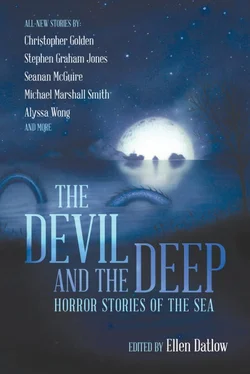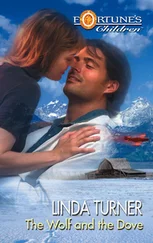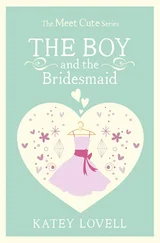“But who could it be?” Charley asked. “The Kaw are all on the reservation, and the whites are all in Council Grove. Do you think the Cheyenne have come back?”
Uncle JoJim finished tying the prairie chicken to Calico Girl’s saddle, then gripped the saddle horn and swung up onto the pinto. “It’s not the Cheyenne.”
“Who, then?” Charley didn’t like not knowing.
“White travelers sometimes pass through the Flint Hills,” Uncle JoJim said. “They never stop long. It’s of no concern.”
But Charley was concerned anyway. “It’s too early for travelers to stop and cook supper, isn’t it? And they shouldn’t make camp out here anyway. The thunderclouds have been coming fast in the evenings. So they should spend the night in Council Grove. We ought to tell them.”
Uncle JoJim glanced back at the smoke. “It’s rude to tell others their business. Besides, there are those who don’t mind wind or water. Or thunder, or lightning.” He nodded toward the next hill to the east. “I remember a patch of rock up there. It would be a good place to race to. If anyone wanted to race.”
So Charley spun Bird King and urged him up the slope. The July sun was hot on his neck, and he imagined it was Calico Girl’s breath.
But when he and Bird King reached the bare patch of limestone and clattered to a stop, Charley looked back and saw that Uncle JoJim was far behind. Calico Girl was moving at a walk. The prairie chickens hanging from her saddle, three on each side, swung lazily.
Charley realized that Uncle JoJim had tricked him. But he didn’t know why. Unless it was just to tease him. Uncle JoJim did that, sometimes.
“You didn’t even try,” Charley said when Uncle JoJim finally drew alongside.
Uncle JoJim stopped Calico Girl with a click of his tongue, then adjusted his battered brown hat. The wind had bent up one side of its brim. Charley wasn’t wearing a hat, and the wind ruffled his straight black hair against his ears.
Uncle JoJim shrugged, and his empty right shirtsleeve flapped. “I didn’t say I would race. All I said was that this would be a good place to race to.” He patted his mare’s dappled red-and-white neck. “Besides, I had not asked Calico Girl if she felt like running.”
“I think you were just afraid you would lose,” Charley said.
“Of course I would lose,” Uncle JoJim said. “I’m a one-armed old man in a loose saddle on a tired mare. You’re a boy riding bareback on a young stallion.” He paused. “And you’ve become a good horseman.”
Charley was amazed. Uncle JoJim’s remark would have been a high compliment from anyone among the Kaw. But coming from Uncle JoJim, it meant even more. Uncle JoJim had given Bird King to Charley and had taught him to ride. And he had offered plenty of criticism in the process. But never, until now, had he offered any praise.
“Thank you, Uncle JoJim,” Charley said. “You’re very kind. And I don’t think you’re old.”
Uncle JoJim gave a snort. “You’ve lived eight and a half years. But I was here forty summers before you. And if you think I’m kind, ask your Aunt Margaret. She’ll tell you I spend too much of my day in selfishness to have any time left over for kindness.” He shifted in his saddle. “No, if I say you’re a good horseman, it’s because it’s true. I ought to know, as I once saw the best horsemen in the world.”
Charley was intrigued. “Who do you mean?”
Uncle JoJim squinted toward the northeast. “Twenty years ago, when I had both arms, I was hired to drive cattle to New Mexico to feed soldiers fighting the desert tribes. As I returned to Kansas with some of the soldiers, we were attacked by Comanche warriors. Those Comanches would slip down to the sides of their ponies to fire their bullets and arrows. Then they would slip back up and turn backward so they could keep shooting at us after they had passed. This was all done while riding as fast as their horses would run. One warrior even rode upside-down, shooting arrows between his pony’s forelegs. It was as if the horse spat arrows from its chest.”
Charley was fascinated.
Uncle JoJim touched his own Adam’s apple. “The soldier beside me died with one of those arrows in his throat. But the rest of us were lucky. A solitary white man appeared atop a nearby ridge, and he drew the attention of the Comanches because he was riding—” Uncle JoJim paused. “It was a wagon. He was riding a big… wagon.”
“A wagon?” Charley asked. “Wasn’t he easy for the Comanches to attack?”
Uncle JoJim frowned as he had frowned when he’d sniffed the air. “No. This man told me later that he had come from where the world is nothing but water. As it once was here, long ago.” He gestured down at the limestone slab, which was embedded with the fossilized shells of ancient sea creatures. “Coming from the water, this man had never heard of the Comanches. So he wasn’t afraid. He also had weapons from his old life, and he killed the first warrior who charged him. Then he killed the horses of the next four. That was worse for the Comanches than being killed themselves, so they fled. Yet even while fleeing, they rode well. Some of them had to ride double, and they were still too fast for the soldiers to chase.” Uncle JoJim looked at Charley. “But they were no faster than you and Bird King. And you ride without a bridle. Even the Comanches used ropes around their ponies’ jaws.” He squinted northeast again. “Of course, I’ve never seen you ride upside-down. So maybe the Comanches were still a little better.”
Charley hesitated before asking his next question. “Were they better than the Cheyenne?”
Uncle JoJim gave another snort. “A month ago, when the Cheyenne came to raid us, we learned that the Kaw are as good as the Cheyenne. And the Comanches were better than the Kaw. But if you tell anyone I said so, I’ll call you a liar.”
Charley sighed. “I wish Allegawaho had not sent us to Topeka when the Cheyenne came. I wish we could have seen the battle.”
Uncle JoJim shook his head. “The Cheyenne numbered more than a hundred, so every full-blood Kaw had to stay and fight. We were the only ones who could go for help. Allegawaho could not have known the Cheyenne would be appeased by sugar and coffee from Council Grove.”
“Plus the three horses they had already stolen from the Kaw,” Charley said.
“Yes, plus the three horses,” Uncle JoJim said. He sounded annoyed. “My point is that fetching the militia was wise, and none of the Kaw could go. It was up to us.”
Charley knotted his hands in Bird King’s mane. “You might have gone without me. Then I could have watched the Kaw and the Cheyenne ride against each other. The women say it was a marvel.”
“I believe they exaggerate. But no matter. Calico Girl and I needed you and Bird King. You helped us ride fast for sixty miles.” Uncle JoJim patted Calico Girl’s neck again. “I don’t think I’ll make her run that far or that fast again. She deserves easy rides and hunts from now on.”
Charley glanced at the prairie chickens hanging from Uncle JoJim’s saddle. “Is today’s hunt finished?”
“The sun is starting to slide down, but the moon will rise when it’s gone. So we could hunt longer if we wished. But I think six chickens are enough for one day.” Uncle JoJim pointed in the direction he had been squinting. “However, there are now two white men and a boy between us and the reservation. The boy is older than you, but not yet old enough to be called a man.”
Charley’s gaze followed the line from Uncle JoJim’s pointing finger. Then he saw them, not quite a half mile away: three sunlit figures on horseback, moving at a trot through the grass, heading for the hilltop where Charley and Uncle JoJim had stopped.
Читать дальше













